The U.S. Supreme Court has been asked to consider overturning same-sex marriage a decade after its landmark ruling.
It will decide whether to hear a case later this year, which is being brought by former Rowan County Clerk Kim Davis.
Davis was jailed for six days in 2015 after she refused to sign same-sex marriage certificates, citing religious grounds.
- The Supreme Court may revisit same-sex marriage a decade after Obergefell v. Hodges, following Kim Davis’s appeal based on religious grounds.
- Davis was jailed for refusing to sign same-sex marriage certificates; she seeks to overturn a ruling against her for emotional damages.
- Liberty Counsel argues Obergefell was wrongly decided, threatening religious liberty and citing parallels with the overturned Roe v. Wade.
- Several Republican-led states are pushing the Supreme Court to overturn same-sex marriage, while others move to protect it at a state level.
- The court might refuse to hear the case, leaving lower court decisions intact, with justices appearing reluctant to revisit marriage equality.
Kim Davis is asking the Supreme Court to overturn a decision against her that could jeopardize same-sex marriage
Image credits: Ty Wright/Getty Images
One couple impacted by her decision sued Davis for emotional distress, and a jury found in their favor, granting them a total of $100,000 in damages and $260,000 in attorneys’ fees.
Liberty Counsel, acting on behalf of Davis, is asking the court to overturn that decision and also overturn Obergefell v. Hodges, which legalized same-sex marriage.
“If ever there were a case of exceptional importance, the first individual in the Republic’s history who was jailed for following her religious convictions regarding the historic definition of marriage, this should be it,” Liberty Counsel said.
The appeal, filed last month, says that Davis has a First Amendment defense against a claim based solely on emotional damages.
Image credits: Scott Strazzante/San Francisco Chronicle via Getty Images
It argues that same-sex marriage was “wrongly” decided because it “threatens the religious liberty of Americans who believe that marriage is a sacred union between one man and one woman.”
Liberty Counsel cites judges who dissented from the 2015 ruling in the appeal, including Justice Clarence Thomas, who said that Obergefell would have “potentially ruinous consequences for religious liberty.”
It also noted that when Roe v. Wade was overturned, the court found the Due Process Clause “does not secure any substantive rights,” including abortion.
Liberty Counsel argued that this meant it did not secure a right to same-sex marriage either.
Earlier this year, a federal appeals court panel concluded that Davis “cannot raise the First Amendment as a defense because she is being held liable for state action, which the First Amendment does not protect,” ABC News reported.
Image credits: Pablo Alcala/Lexington Herald-Leader/Tribune News Service via Getty Images
William Powell, the attorney for David Ermold and David Moore, who sued Davis, said they were confident the Supreme Court would not side with Davis.
“Not a single judge on the U.S. Court of Appeals showed any interest in Davis’s rehearing petition, and we are confident the Supreme Court will likewise agree that Davis’s arguments do not merit further attention,” Powell said in a statement to ABC News.
The appeal comes as several Republican-led states are actively seeking to challenge same-sex marriage rights by urging the Supreme Court to overturn its 2015 decision.
This includes Idaho, North Dakota, Montana, South Dakota, Michigan, Oklahoma, and Iowa, which have introduced resolutions calling for the reversal of Obergefell v. Hodges.
The Supreme Court could decide to not hear the case
Image credits: Anna Moneymaker/Getty Images
At the same time, other states—including Colorado, California, and Hawaii—are moving in the opposite direction to secure marriage equality in state law in the event Obergefell is overturned.
The nation’s largest Protestant Christian denomination, the Southern Baptist Convention, voted in June to make overturning the ruling a top priority.
If the Supreme Court does hear the case and ultimately decides to overturn same-sex marriage, the ruling would not invalidate previous marriages.
It could also decide against hearing the appeal, which would allow the lower court’s ruling on Davis to stand.
Image credits: Mark Wilson/Getty Images
“Justices Brett Kavanaugh and Amy Coney Barrett seem wildly uninterested. Maybe Justice Neil Gorsuch, too,” Sarah Isgur, an ABC News legal analyst and host of the legal podcast Advisory Opinions, said.
“There is no world in which the court takes the case as a straight gay marriage case,” she added.
“It would have to come up as a lower court holding that Obergefell binds judges to accept some other kind of non-traditional marital arrangement.”
There is nothing more vicious and hateful on Earth than Christian's Love of God!
There is nothing more vicious and hateful on Earth than Christian's Love of God!


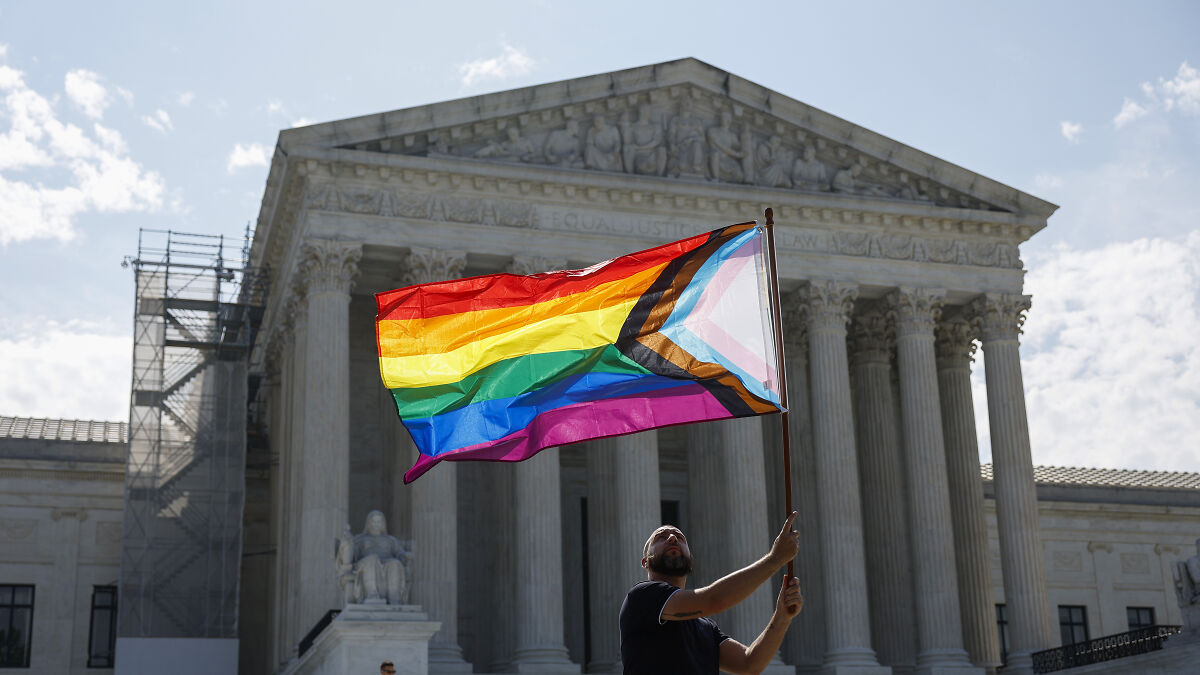
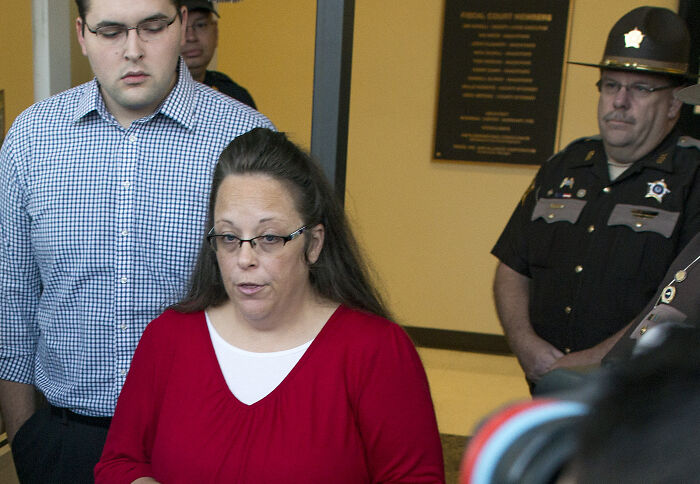
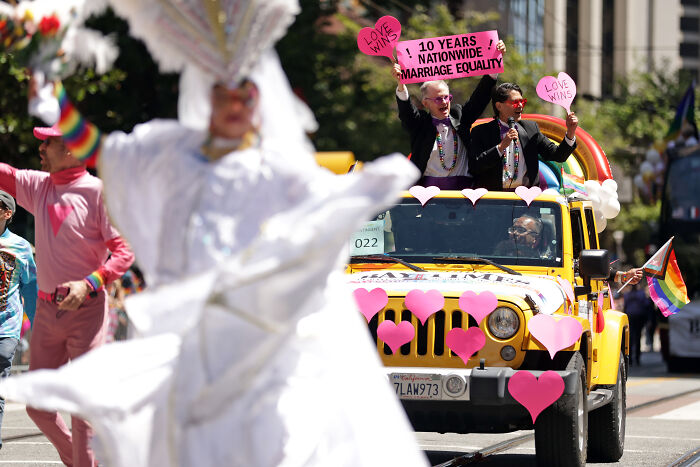
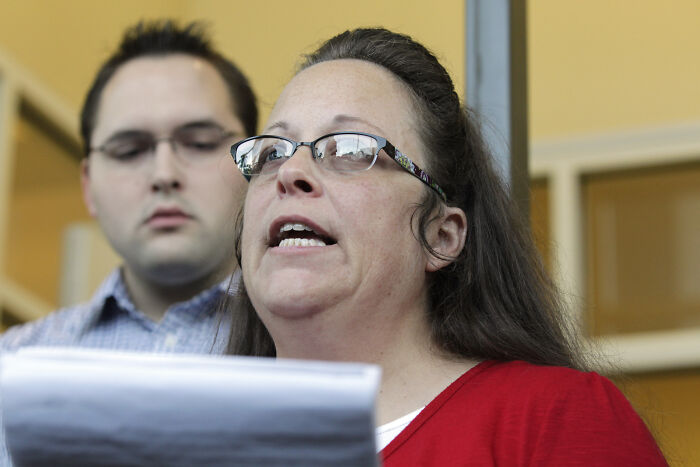
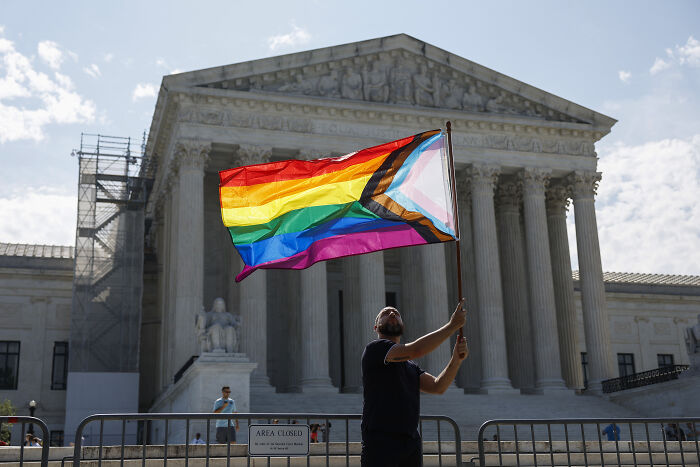
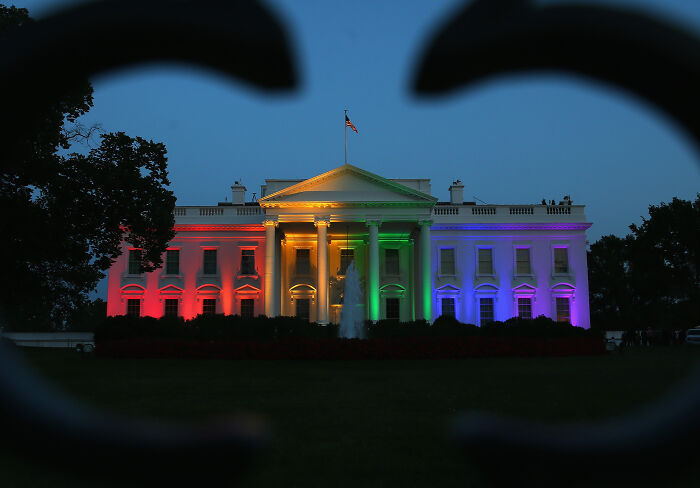



16
2